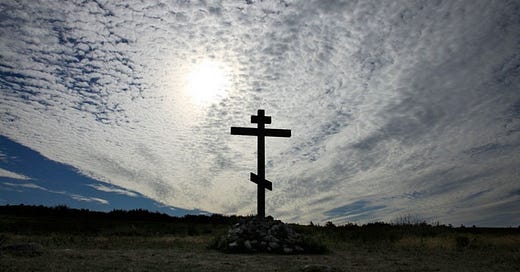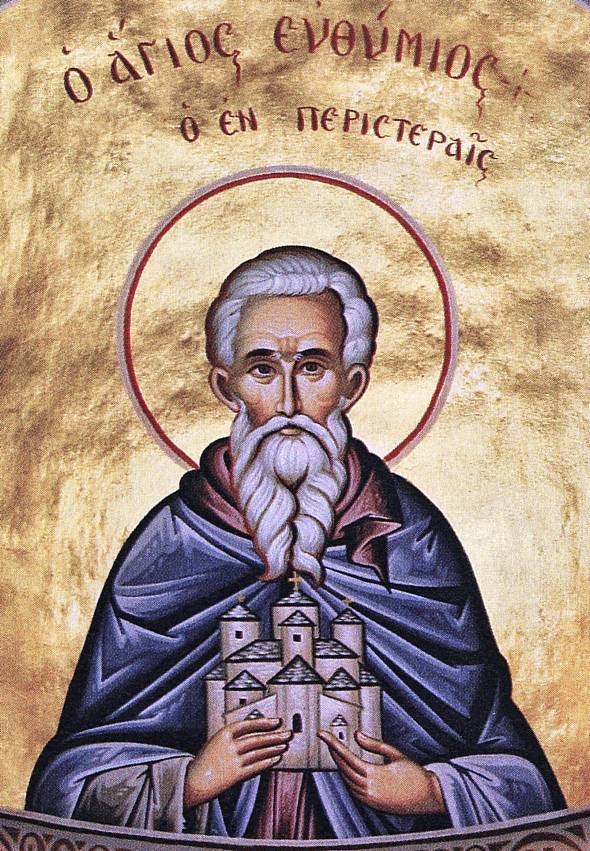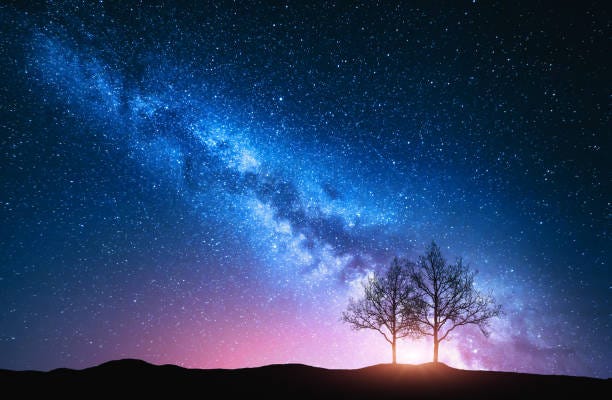"We know that the Lord, while in the flesh, was kind to all people, even those who persecuted Him --- Him, the Almighty God. He showed us how to avoid evil and not oppose it. He said so Himself [cf. Matt. 5:39]. Not opposing evil means preserving one’s inner peace. Opposing evil is evil; it involves a desire to return evil for evil, on which the fallen spirits thrive. However, when they attack us and find that we do not oppose them, then our peacefulness disarms them; and they are defeated. Therefore, we must try to always pray like this: ‘Lord, help me to preserve my inner peace, teach me to be calm and peaceful and kind, just like Thine angels."
Elder Thaddeus (+2003)
Daily Scripture Readings
Ephesians 2:19-3:7
Brethren, you are no longer strangers and sojourners, but you are fellow citizens with the saints and members of the household of God, built upon the foundation of the apostles and prophets, Christ Jesus himself being the cornerstone, in whom the whole structure is joined together and grows into a holy temple in the Lord; in whom you also are built into it for a dwelling place of God in the Spirit.
For this reason I, Paul, a prisoner for Christ Jesus on behalf of you Gentiles– assuming that you have heard of the stewardship of God’s grace that was given to me for you, how the mystery was made known to me by revelation, as I have written briefly. When you read this you can perceive my insight into the mystery of Christ, which was not made known to the sons of men in other generations as it has now been revealed to his holy apostles and prophets by the Spirit; that is, how the Gentiles are fellow heirs, members of the same body, and partakers of the promise in Christ Jesus through the gospel. Of this gospel I was made a minister according to the gift of God’s grace which was given me by the working of his power.
Luke 9:23-27
The Lord said to his disciples, “If any man would come after me, let him deny himself and take up his cross daily and follow me. For whoever would save his life will lose it; and whoever loses his life for my sake, he will save it. For what does it profit a man if he gains the whole world and loses or forfeits himself? For whoever is ashamed of me and of my words, of him will the Son of man be ashamed when he comes in his glory and the glory of the Father and of the holy angels. But I tell you truly, there are some standing here who will not taste death before they see the kingdom of God.”
Venerable Euthymius the New of Thessalonica, and Monk of Mount Athos
Saint Euthymius the New of Thessalonica and Mt Athos, in the world was named Nicetas, and he was a native of the city of Ancyra in Galatia. His parents, Epiphanius and Anna, led virtuous Christian lives, and from childhood their son was meek, pious and obedient. At age seven he was left fatherless and he soon became the sole support of his mother in all matters. Having entered military service, Nicetas married, on the insistence of his mother. After the birth of a daughter, he secretly left home in order to enter a monastery. For fifteen years the venerable Euthymius lived the ascetic life on Mount Olympus, where he learned monastic deeds from the Elders.
The monk went to resettle on Mount Athos. On the way he learned that his mother and wife were in good health. He informed them that he had become a monk, and he sent them a cross, calling on them to follow his example. On Mt Athos he was tonsured into the Great Schema and lived for three years in a cave in total silence, struggling with temptations. Saint Euthymius also lived for a long time as a stylite, not far from Thessalonica, instructing those coming to him for advice and healing the sick.
The monk cleansed his mind and heart to such an extent that he was granted divine visions and revelations. At the command of the Lord, Saint Euthymius founded two monasteries in 863 on Mount Peristeros, not far from Thessalonica, which he guided for 14 years, with the rank of deacon. In one of these his wife and mother received monastic tonsure. Before his death he settled on Hiera, an island of Mt Athos, where he reposed in 898. His relics were transferred to Thessalonica. Saint Euthymius is called “the New” to distinguish him from Saint Euthymius the Great (January 20).
ASPECTS OF THE MODERN DIALOGUE BETWEEN SCIENCE AND ORTHODOXY
Pelagia Eleftheriadou
When we talk about Science, we usually mean things that we can see, measure and touch. But when we talk about Orthodoxy faith, divinity, then the measure is immeasurable, the image is bright and bathed in light, the word is the beginning and the end of everything[1]
For others, faith is dull and indistinct, while for others it is smooth and clear, it is the way for man to reach fullness, to be free from the phenomena of the world.
The competition between Science and Orthodoxy begins in the 19th century.
It was then, that positivism prevailed and people associated scientific and technological development with the well-being of society. Until then, we saw the great scientists looking for God’s plan for the creation of the world. They were trying to explain why and how the world was created, What they didn’t understand was reduced to a divine origin so they could have a title to ‘put’ on it.
In the 20th century this competition heats up, the search for the universe and its operation begins, the theories of things sometimes evolve and reformulate and sometimes depose one another. A race for the scientific community to put everything on paper.
However, Orthodoxy continues to count believers. Believers who don’t ask themselves to put their questions on paper, but use the paper to light candles, write names for religion, read psalms and hymns, glorify the most High.
In order to understand the creation and the image of God, perhaps we should make a parable and apply the ‘human principle’ but with faith in God as a starting point. In this way the observer sees the world that is not understood and not interpreted, things are not understood as material, but as wisdom and providence[2]
There is no doubt that the debate unfolding in the public sphere about Science and Orthodoxy has many levels of reading and strong points of conflict.
Orthodox faith has measures and tools with which we can record and study, but it also has something else, it has faith, it has Christ, it has the word, these are not measurable elements With the stereotypical contrast between the light of science and in the darkness of religion, in the freedom of inquiry and dogma, an idealized picture of science emerges. But we forget that science changes while religion is immutable because God is immutable
It is undeniable that science is constantly evolving and trying to expand its knowledge. There is the impression that Science has evolved so much that has the answer to everything. But in reality we know very little. Religion on the other hand is based on the scriptures and beliefs in the Triune God. So since religion, by definition, does not work like science, why should we use the criteria of science to judge religion?
In liberal democracies, for historical, social and philosophical reasons, religion enjoys special protection and respect. Religious consciousness is given special treatment because it is linked to the individual identity, personal dignity and existential anguish of everyone. And if science comes to question the Divine and prevail as an interpretation of the world and the Universe, Theology has to answer that God has let science evolve and of course predicted its existence
Jesus Christ came to preach Eternal Truths to the world and not to get involved in the fickle and fluid political reality of the “globalized” age. Today, the gospel of the Lord is perceived as an individual and internal case, and is studied through the historical-critical, sociological and philological analysis of the sources. The science behind Orthodoxy is hidden and revealed to the believer and set forth in the Scriptures. Depending on the place that Religion has in a society, sources and interpretations are counted and translated.
Accordingly, opinions and their weight are accepted. So Science and Religion are called upon to answer the great question of the creation of the Universe and indeed with the full range of their dynamics. The study of the natural world is done through logic. But God gave the gift of reason as one of the means to glorify Him. I believe there is no reason to torture ourselves and get into this confrontation. The content of Theology is different from that of Science. Theology talks about the Creation of the World, about God, about the fall, sickness, communion with God, salvation, while Science, as the word itself says, deals with the scientific, with what controls the senses. The problem arises when science is sanctified and Theology is secularized [3] There is no reason for insecurity in the face of scientific achievements. The scientist knows the creations while the seer knows the god and between the created and the uncreated nature there are no similarities.
It is perhaps God’s will that we still do not understand the difference. We are not ready for the connection of soul with matter. At this point I want to submit the reflection, God foresaw and supported science and research so that man can understand and recognize His creation, scientists putting everything in rules that have a specific explanation and sequence do not find a place in inexplicable. So it is inexplicable or maybe science has not yet asked the right question and therefore does not have the answer it recognizes. If we assume that the explanation of the world is read through the prism of the science we know so far and discover every day, maybe we just haven’t been in a position to see the answers because we are not yet at that level of evolution and I will go ahead and say: maybe the “Day of Reckoning” will be present when we are scientifically advanced enough to be able to see it!
BIBLIOGRAPHY
Antonarakis Stylianos: Science and Religion – Stylianos Antonarakis on Science and Religion
John Hedley Brooke, for Science and Religion: Some Historical Perspectives (Cambridge 1991)
John H. Evans. (Author)February 2018, Morals Not Knowledge Recasting the Contemporary U.S. Conflict between Religion and Science.
Hierotheos Metropolitan of Nafpaktos and Agios Vlasios. Between two centuries – Chapter 4. publications of the Holy Monastery of the Nativity of the Virgin Mary (Pelagias)
Christian Ethics II, G. Mantzaridis. Man and God. Man and fellow man. Existential and bioethical positions and perspectives
Interview of H.E. Nikolaos, Metropolitan of Mesogaia and Lavreotike (in Greek
His Eminence Metropolitan Nikolaos of Mesogaia and Laureotiki on the relationship between science and the Church, https://project-sow.org/node/309, retrieved 2/1/2023
Petros Panagiotopoulos, Volumes and incompatibilities, Ropi publications
Prediction omens oracles & prophecies – HarvardX edX online course
Ioannis Romanidis rare speech retrieved 7-16-2023
This week’s calendar reminders:
Monday 10/14: Matins 8:30 a.m.
Tuesday 10/15: no services or events
Wednesday 10/16: no services or events
Thursday 10/17: Matins 8:30 a.m.; Men’s group 7 p.m.
Friday 10/18: Matins 8:30 a.m.
Saturday 10/19: Catechumen Class 4:30 pm; Choir Rehearsal 5 pm; Great Vespers 6 pm
Sunday 10/20: Divine Liturgy 9: 15 a.m.











